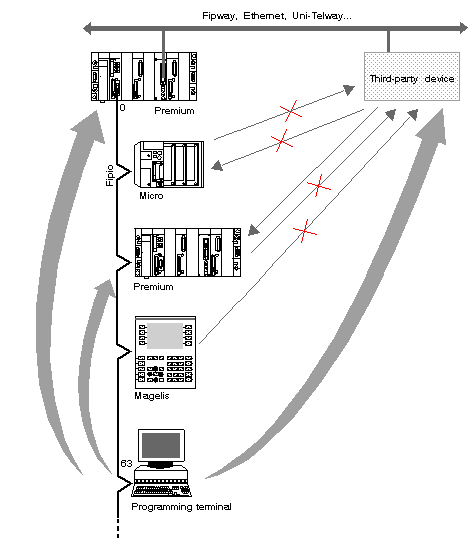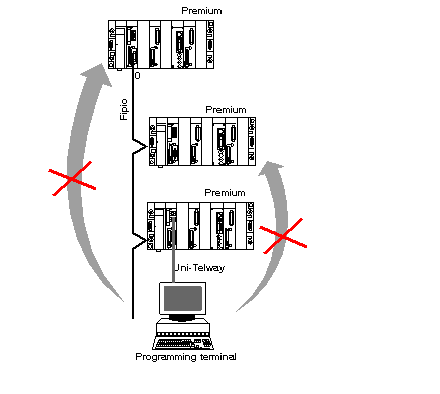Message exchanges from a remote station to the Fipio bus, or vice-versa, are possible as long as certain conditions are met.
Transparency Restrictions
Inter-station communication to Fipio is only available if the bus arbiter is a Premium-type PLC.
Exchanges from a third-party device to a PLC connected as a Fipio agent are only possible if the PLC is Premium. There is no communication to a Micro-type PLC.
Connection point 63 is a privileged connection point, which does not need to be declared in Control Expert configuration.
The programming terminal can only be physically connected to connection point 63.
It is impossible to download a project from the programming terminal connected to address 63 in the bus arbiter from the Fipio bus. In fact, downloading causes the PLC to switch to STOP, which makes Fipio communication no longer managed by the bus arbiter.
NOTE: You must not configure managing Fipio communication (built-in link) and Fipio agent communication (PCMCIA TSX FPP 10 card) on the same PLC
The following illustration shows the different possible exchanges between a Fipio bus, a network or another bus.
In the above example, the micro PLC cannot communicate with the third-party device. Here, you must use the
master PLC. The programming terminal can access the master and Fipio Agents as well as third-party devices via the master.
The following illustration shows the restrictions on exchanges between a terminal connected to the terminal port of a Premium agent.
In the above example, the programming terminal cannot communicate with the managing PLC and the other PLC agents present on the Fipio bus.

